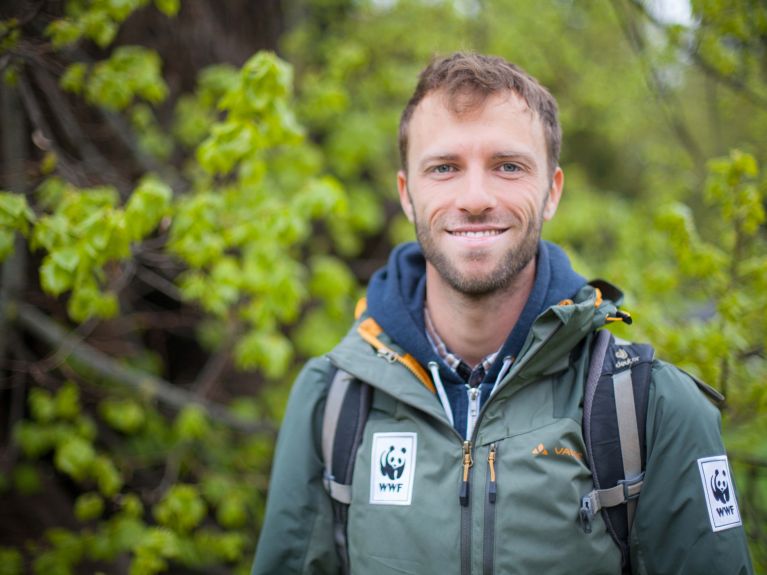Wildlife: Germany’s big five
In our interview with a wildlife expert you will discover whether wild animals like wolves and lynxes will again find a home in Germany.

How much wilderness are humans prepared to leave? We spoke to Moritz Klose about species protection in Germany. He is wildlife officer at the World Wide Fund for Nature (WWF) in Germany.

Mr Klose, which wild animals is the WWF focusing on in particular?
The WWF is currently running exciting projects on our “big five”: the wolf, lynx, grey seal, elk and European bison.
The return of the wolf to German forests has been a success for species protection. But not everyone is pleased about that. Where do the problems lie?
When wolves reappear we need to help people to deal with the new situation. Keepers of grazing animals are directly affected. They need guidance on protective measures for their livestock, as well as unbureaucratic compensation if a wolf then does occasionally kill sheep or goats. A look beyond our borders shows that humans and wild animals living together in close proximity is seldom conflict-free, but is definitely possible. One key to that is honest and current information.
Here you can hear wolves howling in Lusatia
Lynxes and grey seals have also returned to Germany. How was that achieved?
People’s attitude to wildlife has changed. Today we no longer categorise animals on the basis of whether or not they are useful, but respect their right to life. Our ecosystems are complex and fragile – individual animal species like the lynx and the grey seal are also important for an intact natural environment. This awareness has led to stricter nature conservation laws and protection measures that have benefited animals.

Which projects are especially close to your heart?
I have supported the LIFE Lynx Reintroduction Project in the Palatinate Forest almost from the very beginning. It is impressive how the lynxes that have been reintroduced from Switzerland and Slovakia are now producing young. We are also supporting the return of the northern bald ibis to Germany. And in 2017 we launched an international education campaign on large predators. Sixteen partners in Europe want to show that the coexistence of humans and wildlife can work – this has never been done before in this way.
Dieses YouTube-Video kann in einem neuen Tab abgespielt werden
YouTube öffnenThird party content
We use YouTube to embed content that may collect data about your activity. Please review the details and accept the service to see this content.
Open consent formHow can nature lovers support species protection?
Nature lovers can contribute to these animals finding a permanent home in Germany, for example, by sponsoring a wolf or lynx through the WWF.
Interview: Philipp Hallfahrt
© www.deutschland.de

